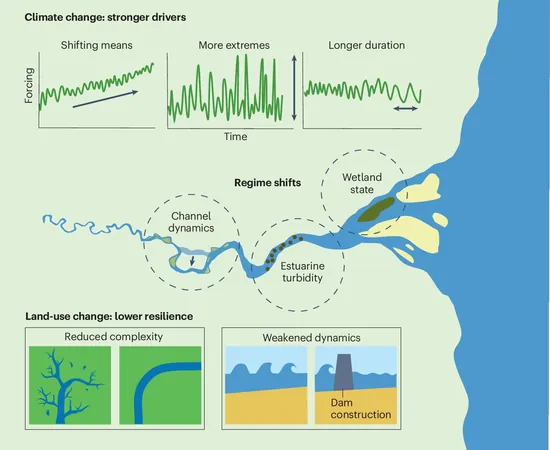
Shocking Connection: Intimate Partner Violence Linked to Memory Loss in Women Entering Menopause!
2024-09-16
Author: Yu
Introduction
CHICAGO – A groundbreaking analysis has found that women who have endured physical intimate partner violence (IPV) may face considerable declines in working memory as they approach menopause. This alarming finding emerges from the longitudinal Study of Women’s Health Across the Nation (SWAN), revealing a concerning trend that could have significant implications for women’s cognitive health.
Study Overview
The study's lead researcher, Jillian Baker, MPH, from the University of Michigan, presented crucial data indicating that women who reported IPV in the year leading up to the study’s baseline—an important period when participants were either pre- or perimenopausal—experienced a notable drop in working memory. The specific decline measured using the Digit Span Backwards test was -0.17 points annually after age 61, a statistically significant difference compared to those who did not report such violence.
Impact of Memory Decline
“Over 8 to 10 years, this decline can be quite substantial, impacting crucial everyday activities like remembering directions or important numbers,” Baker noted. This decline could have detrimental effects on women’s quality of life, highlighting an urgent need for awareness and intervention.
Statistics on IPV
Statistics reveal that roughly 25% of U.S. women experience severe physical violence from intimate partners at some point in their lives. This form of violence is also linked to heightened rates of various mental and physical health disorders compared to those without such experiences. Previous research has consistently indicated connections between IPV and neuropsychiatric functioning, including working memory issues.
Cognitive Domain Discrepancy
Interestingly, while working memory exhibited significant declines in women who had faced IPV, other cognitive domains such as processing speed or verbal memory showed no notable changes. This discrepancy poses intriguing questions for researchers, as Baker admitted, “It’s unclear why we observe a strong correlation with working memory and not with other cognitive aspects.”
Broader Implications
Baker also highlighted that many women might have experienced IPV outside of the specified timeframe, potentially making the link even more pronounced than the results suggest. The study accounted for 1,713 women, out of which only 53 reported IPV prior to the baseline, showcasing the challenges of capturing the full scope of this issue.
Age as a Factor
The age of 61 was identified as a pivotal point where cognitive performance noticeably shifts. However, Baker cautioned that this does not mean all women will experience immediate changes in memory after this age; variations exist among individuals. Crucially, the researchers speculated on possible mechanisms behind the observed vulnerabilities, including traumatic brain injuries resulting from physical violence and underlying mental health conditions.
Conclusion
SWAN, which began in 1996 with 3,302 participants, aims to understand menopause’s transition across a racially and ethnically diverse population. The sub-study emphasized the importance of longitudinal data in revealing the complexities surrounding women’s health during this critical life stage.
These findings call for wider recognition of the mental and cognitive impacts of intimate partner violence, especially as women navigate the challenging transition into menopause. As we continue to uncover the psychological ramifications of IPV, it becomes imperative to support survivors and address these pressing health concerns.
Stay tuned as this research unfolds—women's health advocacy is more essential than ever!



 Brasil (PT)
Brasil (PT)
 Canada (EN)
Canada (EN)
 Chile (ES)
Chile (ES)
 España (ES)
España (ES)
 France (FR)
France (FR)
 Hong Kong (EN)
Hong Kong (EN)
 Italia (IT)
Italia (IT)
 日本 (JA)
日本 (JA)
 Magyarország (HU)
Magyarország (HU)
 Norge (NO)
Norge (NO)
 Polska (PL)
Polska (PL)
 Schweiz (DE)
Schweiz (DE)
 Singapore (EN)
Singapore (EN)
 Sverige (SV)
Sverige (SV)
 Suomi (FI)
Suomi (FI)
 Türkiye (TR)
Türkiye (TR)